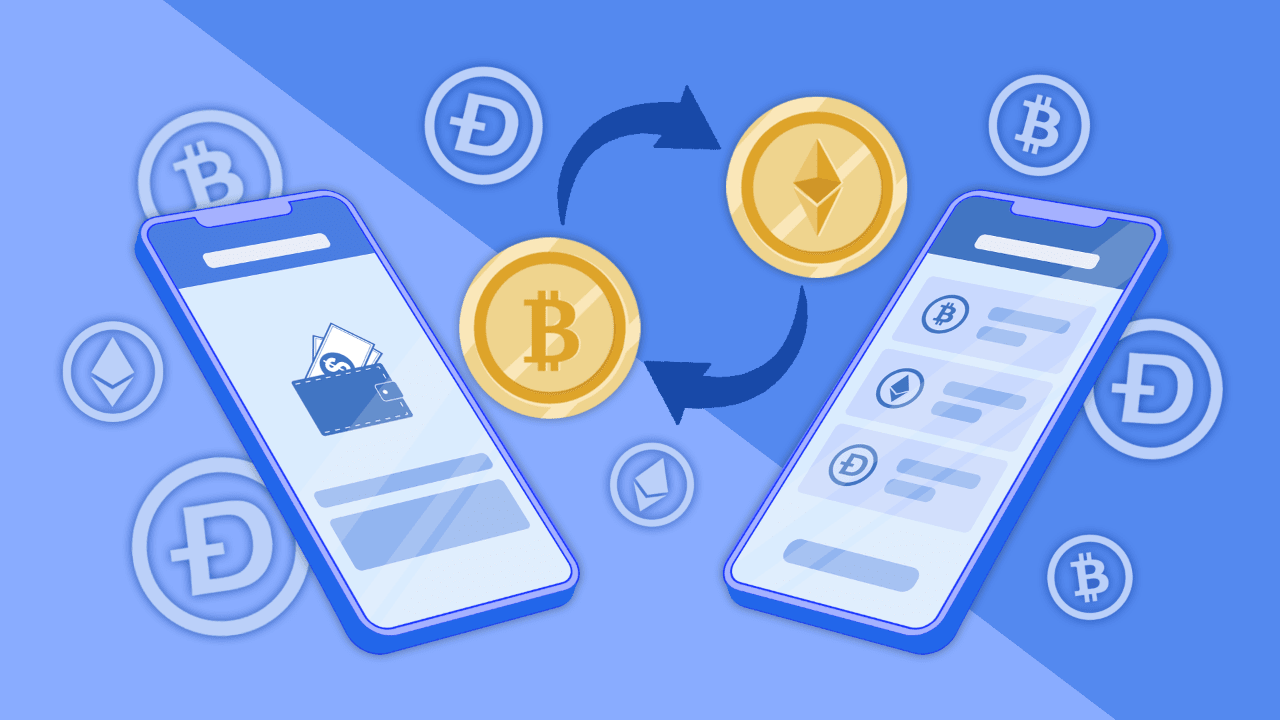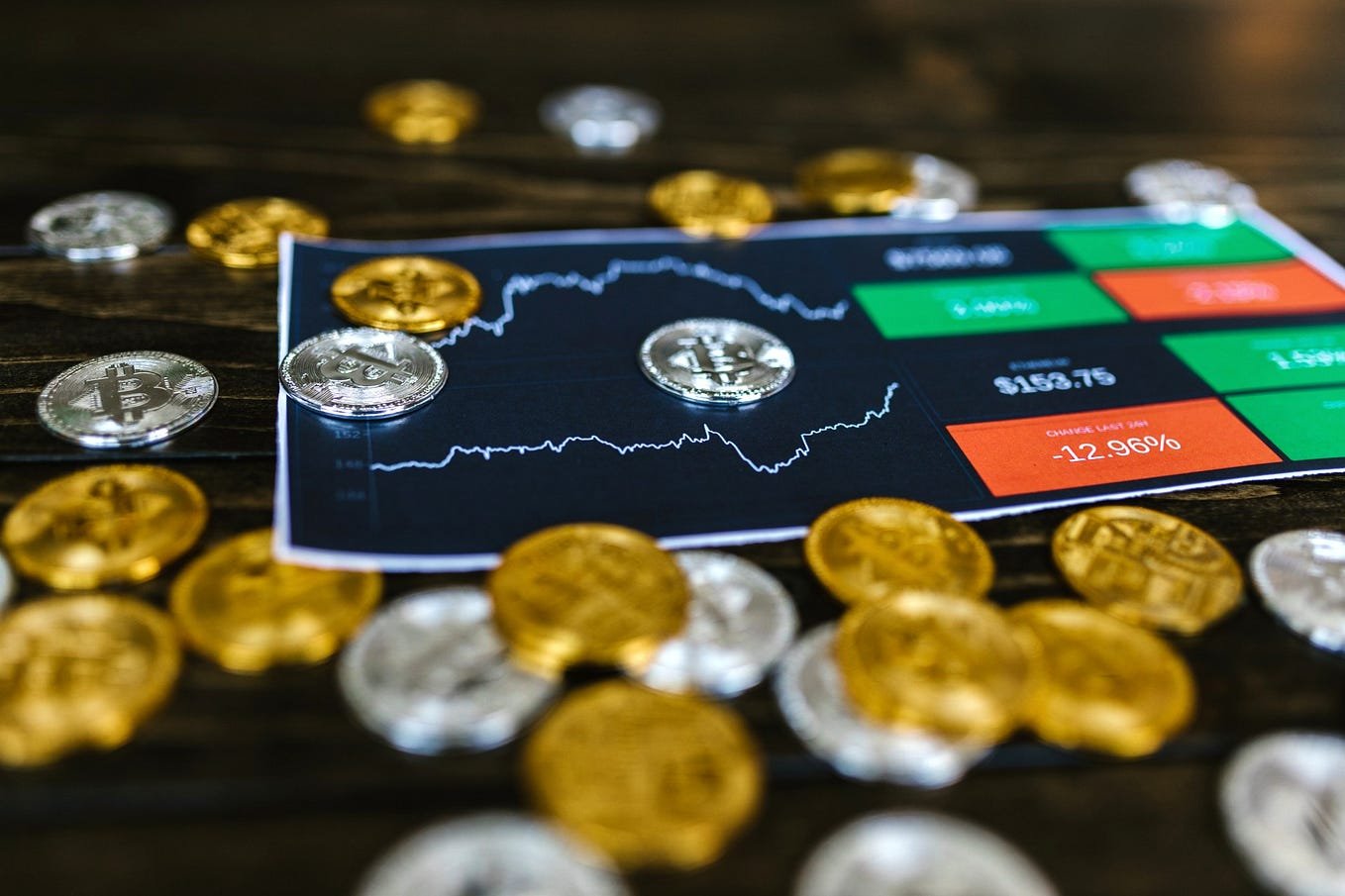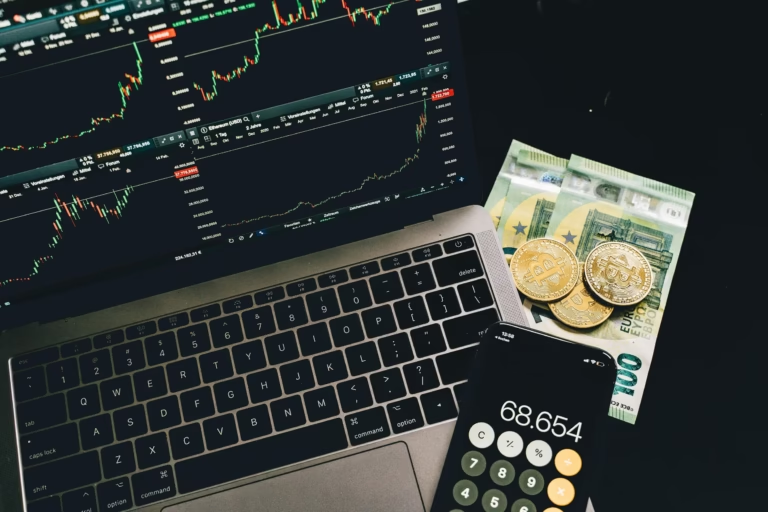The revolutionary convergence of artificial intelligence and cryptocurrency has created an exciting new investment landscape that’s capturing global attention. If you’re wondering how to buy AI crypto tokens, you’re entering one of the most innovative sectors in the digital asset space. AI crypto tokens represent the future of blockchain technology, combining machine learning capabilities with decentralized finance to create powerful platforms that automate processes, enhance security, and optimize data analytics.
Understanding how to buy AI crypto tokens is crucial for investors looking to capitalize on this technological revolution. These digital assets power AI-driven projects that use sophisticated algorithms and models to transform various industries, from healthcare and finance to gaming and supply chain management. With the AI crypto market expanding rapidly and institutional investments pouring in, learning the proper steps to acquire these tokens can position you at the forefront of this emerging sector.
Understanding AI Crypto Tokens: What You Need to Know
What Are AI Crypto Tokens?
AI crypto tokens are specialized digital assets that power artificial intelligence-focused blockchain platforms and applications. Unlike traditional cryptocurrencies, these tokens serve specific functions within AI ecosystems, enabling users to access AI services, pay for computational resources, participate in governance decisions, and earn rewards for contributing to network operations.
These tokens typically operate as utility tokens within their respective platforms, similar to how Ethereum’s ETH functions on the Ethereum network. They facilitate various activities including purchasing AI models, accessing machine learning services, renting computational power, and incentivizing developers and data contributors.
Key Features of AI Cryptocurrency Tokens
Modern AI crypto tokens offer several distinctive characteristics that set them apart from conventional digital assets:
Utility-Driven Functionality: Most AI tokens provide access to specific services within their platforms, such as data processing, model training, or prediction services.
Governance Rights: Many AI tokens grant holders voting rights on protocol upgrades, development decisions, and resource allocation within the network.
Incentive Mechanisms: These tokens reward users for contributing valuable data, computational resources, or accurate predictions to the network.
Cross-Platform Integration: Leading AI tokens often integrate with multiple platforms and services, creating interconnected ecosystems of AI-powered applications.
How to Buy AI Crypto Tokens: Step-by-Step Process

Step 1: Research and Select Your AI Crypto Tokens
Before learning the technical aspects of how to buy AI crypto tokens, you must first identify which tokens align with your investment goals and risk tolerance. The AI crypto space includes various categories:
Established AI Tokens: Projects like SingularityNET (AGIX), Fetch.ai (FET), and The Graph (GRT) have proven track records and strong communities.
Emerging AI Projects: Newer tokens like Bittensor (TAO) and Render (RNDR) focus on specific AI applications such as decentralized machine learning and GPU rendering.
AI Agent Tokens: Specialized tokens that power autonomous AI agents capable of performing complex tasks and transactions.
Conduct thorough research on each project’s whitepaper, roadmap, team credentials, partnerships, and real-world applications before making investment decisions.
Step 2: Choose a Reliable Cryptocurrency Exchange
Selecting the right exchange is crucial when learning how to buy AI crypto tokens. Different platforms offer varying levels of security, fees, and token availability:
Major Centralized Exchanges: Platforms like Binance, Coinbase, and Kraken offer user-friendly interfaces, high liquidity, and strong security measures. These exchanges typically list the most popular AI tokens and provide excellent customer support.
Specialized DeFi Platforms: Decentralized exchanges like Uniswap and SushiSwap often list newer AI tokens before major centralized platforms. However, they require more technical knowledge and carry additional risks.
Regional Exchanges: Some AI tokens may only be available on specific regional exchanges, requiring you to research local platforms in your jurisdiction.
Step 3: Complete Account Verification and Security Setup
Once you’ve chosen an exchange, follow these essential steps:
Account Registration: Provide accurate personal information and create a strong, unique password for your account.
Identity Verification (KYC): Most reputable exchanges require Know Your Customer verification, which involves submitting government-issued identification and proof of address.
Two-Factor Authentication: Enable 2FA using apps like Google Authenticator or Authy to add an extra security layer to your account.
Security Settings: Configure withdrawal limits, notification preferences, and other security features according to your needs.
Step 4: Fund Your Exchange Account
To purchase AI crypto tokens, you’ll need to deposit funds into your exchange account. Most platforms accept several funding methods:
Bank Transfers: Wire transfers and ACH deposits typically offer the lowest fees but may take several business days to process.
Credit/Debit Cards: Instant funding option with higher fees, usually ranging from 2-4% of the transaction amount.
Cryptocurrency Deposits: If you already own cryptocurrencies like Bitcoin or Ethereum, you can transfer them to your exchange account.
Payment Services: Some exchanges accept payments through services like PayPal, Skrill, or local payment processors.
Step 5: Execute Your AI Token Purchase
With funded accounts, you’re ready to complete your first AI crypto token purchase:
Market Orders: Buy tokens immediately at current market prices. This option provides instant execution but may result in price slippage during volatile periods.
Limit Orders: Set specific buy prices and wait for the market to reach your target. This approach offers better price control but may not execute if your price targets aren’t met.
Dollar-Cost Averaging: Consider purchasing tokens in smaller amounts over time to reduce the impact of price volatility on your investment.
Best Platforms for Purchasing AI Crypto Tokens

Top Centralized Exchanges for AI Tokens
Binance: The world’s largest cryptocurrency exchange offers extensive AI token listings, competitive fees, and advanced trading features. Binance provides excellent liquidity for major AI tokens and regular listings of emerging projects.
Coinbase: Known for its user-friendly interface and regulatory compliance, Coinbase offers a curated selection of AI tokens with strong security measures and insurance coverage for digital assets.
Kraken: A veteran exchange with robust security protocols and professional trading tools. Kraken provides detailed market analysis and educational resources for AI crypto investors.
Decentralized Exchange Options
Uniswap: The leading DEX for Ethereum-based AI tokens, offering access to newly launched projects and providing liquidity provision opportunities.
PancakeSwap: Binance Smart Chain’s premier DEX, featuring AI tokens built on the BSC ecosystem with lower transaction fees.
Specialized AI Token Platforms
Some platforms focus specifically on AI and machine learning projects, offering unique opportunities to access cutting-edge tokens before they reach mainstream exchanges.
Popular AI Crypto Tokens to Consider
SingularityNET (AGIX)
SingularityNET operates as a decentralized marketplace for AI services, allowing developers to monetize their AI algorithms and enabling users to access a wide range of AI tools. AGIX tokens facilitate transactions within the platform and provide governance rights to holders.
Key Features:
- Decentralized AI marketplace
- Cross-platform AI integration
- Democratic governance through token voting
- Extensive developer ecosystem
Fetch.ai (FET)
Fetch.ai creates an intelligent digital economy where autonomous agents can perform complex tasks and transactions using artificial intelligence. The platform focuses on optimizing resource allocation and enabling machine-to-machine economic interactions.
Use Cases:
- Autonomous economic agents
- Supply chain optimization
- Smart city applications
- DeFi protocol automation
The Graph (GRT)
The Graph functions as a decentralized indexing protocol for blockchain data, using AI-enhanced querying to provide developers with easy access to on-chain information. GRT tokens incentivize indexers and curators who maintain the network.
Applications:
- Blockchain data indexing
- Developer infrastructure
- Cross-chain compatibility
- Query optimization
Bittensor (TAO)
Bittensor creates a decentralized machine learning network where AI models collaborate and compete to produce valuable intelligence. TAO tokens reward models based on their contributions to the collective intelligence.
Innovation Points:
- Collaborative AI model training
- Proof-of-intelligence consensus
- Open-source AI development
- Decentralized knowledge markets
Security Best Practices for AI Crypto Token Storage
Choosing the Right Wallet Solution
Hot Wallets: Software wallets like MetaMask, Trust Wallet, and exchange wallets provide convenience for regular trading but carry higher security risks due to internet connectivity.
Cold Wallets: Hardware wallets such as Ledger and Trezor offer maximum security by storing private keys offline, making them ideal for long-term AI token holdings.
Multi-Signature Wallets: Advanced users can implement multi-sig solutions requiring multiple signatures for transactions, providing additional security layers.
Implementation Security Measures
Private Key Management: Never share your private keys or seed phrases with anyone. Store them securely offline in multiple physical locations.
Regular Security Audits: Periodically review your security practices, update software, and monitor accounts for unauthorized activities.
Diversification Strategy: Avoid keeping all tokens in a single wallet or exchange. Distribute holdings across multiple secure storage solutions.
Investment Strategies for AI Crypto Tokens
Long-Term Holding (HODLing)
This strategy involves purchasing AI tokens and holding them for extended periods, betting on the long-term growth of artificial intelligence adoption in blockchain ecosystems. Long-term holders benefit from:
- Reduced transaction fees from frequent trading
- Potential governance rewards and token airdrops
- Exposure to fundamental technological growth
- Protection from short-term market volatility
Dollar-Cost Averaging (DCA)
DCA involves making regular purchases regardless of token prices, helping smooth out market volatility effects. This approach works particularly well for AI tokens due to their innovative nature and growth potential.
Diversified AI Portfolio
Rather than concentrating on single tokens, consider building a diversified portfolio including:
- Established AI platforms (AGIX, FET, GRT)
- Emerging AI projects (TAO, RNDR)
- AI infrastructure tokens
- Specialized AI application tokens
Active Trading Strategies
Experienced traders can capitalize on AI token volatility through:
- Technical analysis and chart patterns
- News-based trading around AI developments
- Arbitrage opportunities across exchanges
- Futures and options trading (where available)
Common Mistakes to Avoid When Buying AI Crypto Tokens
Insufficient Research
Many investors rush into AI token purchases without understanding the underlying technology, use cases, or competition. Always research projects thoroughly before investing.
FOMO-Driven Decisions
Fear of missing out can lead to poor investment timing and excessive risk-taking. Develop a systematic approach to AI token investing rather than reacting to market hype.
Ignoring Security Practices
Neglecting proper security measures has led to millions in losses. Implement robust security practices from your first AI token purchase.
Overconcentration
Putting too much capital into single AI tokens or the AI sector generally increases portfolio risk. Maintain appropriate diversification across assets and sectors.
Emotional Trading
Making decisions based on fear or greed rather than analysis often results in poor outcomes. Develop and stick to predetermined investment strategies.
Tax Implications of AI Crypto Token Investments
Understanding Crypto Taxation
Most jurisdictions treat cryptocurrency transactions as taxable events. When you buy, sell, or trade AI crypto tokens, you may incur tax obligations:
Capital Gains Tax: Profits from selling AI tokens are typically subject to capital gains taxation, with rates varying based on holding periods and jurisdiction.
Income Tax: Earning AI tokens through staking, mining, or airdrops may constitute taxable income at fair market value.
Trading Activities: Frequent trading of AI tokens may classify you as a trader for tax purposes, affecting how gains and losses are treated.
Record-Keeping Requirements
Maintain detailed records of all AI token transactions, including:
- Purchase dates and prices
- Sale dates and prices
- Transfer records between wallets and exchanges
- Gas fees and transaction costs
- Staking rewards and airdrop receipts
Consider using cryptocurrency tax software or consulting with tax professionals familiar with digital asset regulations in your jurisdiction.
Future Outlook for AI Crypto Token Market
Market Growth Projections
The AI crypto token sector shows tremendous growth potential driven by:
Increasing AI Adoption: As artificial intelligence becomes more prevalent across industries, demand for AI-powered blockchain solutions continues to grow.
Institutional Investment: Major corporations and investment funds are beginning to recognize AI tokens as legitimate investment vehicles.
Technological Advancement: Improvements in blockchain scalability and AI capabilities are expanding use cases for AI crypto tokens.
Regulatory Clarity: Developing regulatory frameworks provides more certainty for AI token projects and investors.
Emerging Trends and Opportunities
AI Agent Economies: Autonomous agents using AI tokens for transactions and services represent a growing market segment.
Cross-Chain AI Solutions: Projects enabling AI functionality across multiple blockchains are gaining traction.
Enterprise AI Integration: Business adoption of AI crypto solutions for data analytics, automation, and optimization.
Decentralized AI Governance: Token-based governance systems for AI development and deployment decisions.
Conclusion
Learning how to buy AI crypto tokens opens doors to one of the most exciting and rapidly evolving sectors in the cryptocurrency space. By following the comprehensive steps outlined in this guide—from research and platform selection to security implementation and investment strategy development—you can confidently enter the AI crypto market while minimizing risks and maximizing potential returns.
The convergence of artificial intelligence and blockchain technology represents a fundamental shift in how we think about digital assets and their real-world applications. As AI continues to transform industries and blockchain adoption accelerates, AI crypto tokens are positioned to play crucial roles in this technological revolution.
FAQs
What are the minimum requirements to buy AI crypto tokens?
To purchase AI crypto tokens, you need a valid government-issued ID for exchange verification, a funding source (bank account, credit card, or existing cryptocurrency), and a secure internet connection. Most exchanges have minimum purchase amounts ranging from $10-50, making AI tokens accessible to investors with modest budgets.
Which AI crypto tokens are best for beginners?
Beginners should consider established AI tokens like SingularityNET (AGIX), Fetch.ai (FET), and The Graph (GRT) due to their proven track records, active development teams, and strong community support. These tokens are available on major exchanges and have comprehensive documentation to help new investors understand their use cases.
How do I store AI crypto tokens safely after purchase?
For maximum security, transfer AI tokens to a hardware wallet like Ledger or Trezor after purchase. For smaller amounts or active trading, reputable exchange wallets or software wallets like MetaMask provide adequate security. Always enable two-factor authentication and never share your private keys or seed phrases.
Are AI crypto tokens regulated?
AI crypto token regulation varies by jurisdiction. In the United States, most AI tokens fall under SEC oversight as potential securities, while the EU treats them as digital assets under MiCA regulations. Always check local regulations and consult with financial advisors before making significant investments in AI crypto tokens.
What factors affect AI crypto token prices?
AI token prices are influenced by technological developments in the AI and blockchain sectors, adoption rates of the underlying platforms, partnership announcements, regulatory news, overall cryptocurrency market sentiment, and broader economic conditions. Token-specific factors include network usage, governance decisions, and competitive positioning within the AI crypto ecosystem.


